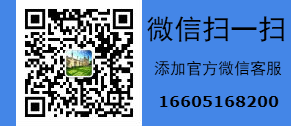高考英语阅读理解的答题技巧注意事项2022高考英语阅读理解及答案
更新时间:2023-03-13 07:03点击:





高考英语阅读理解的答题技巧注意事项2022高考英语阅读理解及答案
下载地址
https://pan.baidu.com/s/11msSsQBgvDKBtUki7nNkvw?pwd=1234
10倍速抗遗忘轻松记单词下载
https://pan.baidu.com/s/1A5qOEhDKxgq
资料目录
高考英语阅读理解高频词汇资料合集(文本+mp3)
高考英语阅读理解满分的经典技巧方法视频讲解
高考英语阅读的解题技巧与方法冲刺live课堂视频
高考英语阅读理解AB篇满分技巧实战活用视频课程
高考英语阅读理解CD篇高分做题步骤视频课程
【最好的高考英语阅读理解视频课程】解题方法论,推断题做题方法,猜词题做题方法,细节题解题方法,主旨大意题做题方法,好题精讲精练01-04
【提分金手指】高考英语阅读理解超实用解题技巧视频讲解
高考英语阅读理解的技巧和方法
高考英语阅读理解各种题型及解题技巧汇总
高考英语阅读理解解题技巧讲解
高考英语阅读理解的技巧和方法教学设计
高考英语阅读理解的技巧和方法ppt课件
高考英语阅读理解4类题型解题攻略+7大解题技巧+八大书信通用句型
高考英语阅读理解100篇大全及答案解析
高考英语阅读理解100篇试题及答案(附答题技巧)
高考英语阅读理解专项练习100篇附答案
2022年高考英语阅读理解100篇带答案
2022年高考英语阅读真题讲解视频全集
2021年高考英语阅读真题讲解视频全集
2020年高考英语阅读真题讲解视频全集
2019年高考英语阅读真题讲解视频全集
王津高考英语阅读理解真题精讲视频
高考英语阅读理解100篇试题及答案(附答题技巧)
2019年-2022年全国各地高考英语阅读理解真题及答案
近五年高考英语阅读理解真题分项汇编(2018-2022)
2022年高考英语阅读理解真题及答案(全国甲卷)
2022年高考英语全国乙卷阅读理解真题及答案解析和翻译
2021年全国甲卷高考英语阅读理解真题及答案解析
2021高考英语全国卷乙卷阅读理解题及详解答案
2020年高考英语真题阅读理解汇编与答案详解
2019年全国高考英语真题及参考答案汇总
2019高考英语全国I卷II卷III卷阅读理解真题带答案解析
2018高考英语阅读理解真题大全(附详解)
历年高考英语阅读理解题汇总汇编120篇+详细解析
高考英语阅读理解题人物故事类10套(带答案)及解析
高考英语阅读理解特训综合资料
高考英语阅读理解真题词汇+默写(按频次排序版)共16个单元1604个单词
高考英语阅读理解真题训练-广告、新闻类(解析版)
高考英语阅读理解专项练习题十篇有答案解析
举例
高考英语阅读理解经典题型及解题技巧
1.推测文章来源或读者对象
常见命题形式有:
The passage is probably take out of_____
The passage would most likely be found in_____
Where does this text probably come from?
2.写作意图、目的、态度推断题
作者的语气态度往往不会直接写在文章里,只能通过细读文章,从作者的选词及其修饰手段中体会出来。
询问写作目的的题,选项里常出现的词是:explain(解释), prove (证明), persuade(劝说), advise(劝告), comment(评论), praise(赞扬), criticize(批评), entertain(娱乐), demonstrate(举例说明), argue(辩论), tell(讲述), analyze(分析)等。
询问语气态度的题,选项里
常出现的词是:neutral(中立的), sympathetic(同情的), satisfied(满意的), friendly(友好的), enthusiastic(热情的), subjective(主观的), objective(客观的), matter-of-fact(实事求是的), pessimistic(悲观的), optimistic(乐观的), critical(批评的), doubtful(怀疑的), hostile(敌对的), indifferent(冷淡的), disappointed(失望的)。常见命题形式有:
The purpose of the text is_____
What is the main purpose of the author writing the text? By mentioning…, the author aims to show that_____
What is the author’s attitude towards…?
What is the author’s opinion on…?
The author’s tone in this passage is _____.
解题技巧
推断题是考查学生透过文章表面的文字信息进行分析、综合、归纳等逻辑推理的能力。推理和判断必须以事实为依据,切莫主观臆断。
①那些文章中直接陈述的内容不能选,要选择根据文章推理出来的选项。
②推理不是凭空猜测,而是立足已知推断未知;作出正确答案时一定要在文中找到依据或理由。
③要忠实于原文,以文章提供的事实和线索为依据。不能以自己的观点代替作者的想法;不要脱离原文主观臆断。
My father, at the death of his father, was six years old, and he grew up without education. He moved from Kentucky to Indiana when I was seven. We reached our new home about the time the state came into the Union. It was a wild area, with many bears and other wild animals still in the woods. I grew up there. There were some so-called schools, but what was required of a teacher never went beyond “reading, writing, and adding.” If a stranger supposed to understand Latin happened to live for a time in the area, he was looked on as wizard (奇才). There was simply nothing to excite a desire for education. Of course, when I grew up, I did not know much. Still, somehow, I could read, write, and add, but that was all. The advance I have now made is on this store of education, which I have picked up under the pressure of necessity.
1. When the writer was a child ____ .
A. his grandfather died in the state of Kentucky
B. his family settled down in the countryside of Indiana
C. Kentucky joined the Union as a member state
D. his family had to move from place to place
2. When the writer was seven, his family moved to an area where ____ .
A. educated people were greatly respected
B. only a few had a knowledge of Latin
C. people were often killed by wild animals
D. the land had yet to be farmed
3. The schools in the area ____ .
A. were of poor quality (质量) B. offered all kinds of subjects
C. respected those who knew Latin D. had teachers good at reading, writing, and adding
4. How did the writer look at his early education?
A. He believed he met the school requirements.
B. He thought he was well-educated.
C. He thought it was not satisfactory.
D. He believed he was poorly educated.
5. At the time he wrote, the writer ____ .
A. had to learn to read, write and add
B. found it necessary to receive advanced education
C. was probably fairly well-educated
D. was dissatisfied with his level of education
答案
1B 2 D 3 A 4 C 5 C
相关文章




 QQ客服1:2151239526
QQ客服1:2151239526  | 苏ICP备06011263号|
| 苏ICP备06011263号| 
